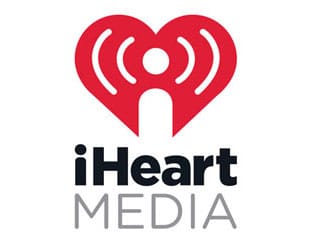Bill mark-ups on Capitol Hill can often be rapid-fire events, but on Wednesday nearly every member of the House Judiciary Committee wanted to make a speech on the record declaring that they wished no harm to minority broadcasters, small broadcasters – or both. Nevertheless, the measure requiring AM and FM stations to pay performance royalties passed the committee 21-9 and now heads to the full House.
Broadcasters have a new best friend in Rep. Maxine Waters (D-CA), who argued forcefully that the measure threatened the existence of many minority-owned radio stations. Waters even supported an amendment by Rep. Dan Lungren (R-CA), which would have stripped H.R. 848 of every word it contained and replaced it with a requirement that the Government Accountability Office (GAO) conduct a study on the value of music to radio stations, weighed against the promotional value of airplay to record companies and artists – and the impact that performance royalty fees would have on local radio stations and their communities. Lungren happily agreed to add language from Waters to have the GAO also specifically study the impact on minority-owned radio stations. Waters noted that she believed it was the first time she and Lungren had ever been in agreement on an issue.
“Let me be clear, I do believe performers should be paid for their work, but in modernizing the statutes we must be very careful to avoid actions that would diminish the voice of minority broadcasters. Corporate mergers have already had a devastating impact on small to medium-sized minority radio broadcasters. I don’t want to make that problem worse with a burdensome new law,” Waters said. She called the bill by Chairman John Conyers (D-MI) a “good starting point,” but warned of “unintended but devastating consequences” if it were passed as it stands.
The Lungren amendment was defeated 20-10. Another amendment by Rep. Ted Poe (R-TX), which would have cut record companies out of any payments, with royalties going exclusively to artists, was defeated on a voice vote.
The only amendment to pass was one offered by Conyers himself which was designed to lessen opposition from civil rights activists and minority, small and religious broadcasters. It reduced the proposed fees to $500 per year for stations with gross revenues of less than $100K. For gross revenues of $100K-500K the fee would be $2,500 per year and for $500K-2.25 million it would be $5,000 per year. Conyers claimed that would cover 90% of minority-owned stations and 77% of all stations.
Also, under the amendment, the fees would not start for three years for stations with gross revenues under $5 million. They would begin in one year for those with revenues of $5 million or more. Conyers said that would provide broadcasters with time to make the adjustment.
Larger stations would be able to negotiate with the record labels and artists, represented by SoundExchange, over royalties, with the Copyright Royalty Board settling disputes and weighing the value of music to a station against the promotional value of airplay. Several members complained that without a report from GAO on just that issue – which has now been requested by Conyers and others – the committee was rushing through the legislation without vital information.
As the mark-up session dragged on for hours, members who planned to vote for the bill insisted on explaining that they in no way were wanting to harm minority or female owners of radio stations. The Conyers changes, they said, should alleviate those concerns. Several indicated that they had been bombarded by telephone calls from constituents accusing them of trying to destroy black radio.
Rep. Hank Johnson (D-GA) lashed out at Radio One Chair Cathy Hughes and CEO Alfred Liggins for using their radio stations to, in his words, “promote this misinformation.” He also charged that syndicated host Tom Joyner had been “employed to spread hysteria.” According to Johnson, “this won’t harm the broadcasters at all.”
The Minority Media & Telecommunications Council has estimated that at least a third of all minority-owned radio stations will be forced into sale or bankruptcy if H.R. 848 becomes law. With approval of the bill by the Judiciary Committee, the fight now moves to the House floor. At last count, the NAB had lined up 192 of the 218 votes needed to insure the bill’s defeat. Make that 193. It looks like it is safe to add Rep. Waters to that list.
RBR/TVBR observation: Broadcasters made a huge tactical mistake a few years back when they failed to align with Internet streamers in opposing any performance royalty payments. Now the argument is for “parity.” What parity actually means is that most broadcasters will be put out of business, just as most webcasters have closed up shop.
It was most disturbing to hear lawmaker after lawmaker supporting the bill offer assurances that the Copyright Royalty Board would weigh the relative value of the promotional value of airplay against the value that a radio station receives from playing music. These are the three judges who were unable to understand the difference between streaming and downloading and thus adopted streaming royalties which, but for the intervention of angry Members of Congress, would have shut down every Internet streaming operation by charging royalties amounting to more than 100% of what they could conceivably have garnered in revenues. Instead, the rates were adjusted downward to the point where a few of the larger webcasters were able to somehow survive.
A similar scenario would mean that Clear Channel, CBS Radio and a few others might be able to struggle on paying Performance Royalties, but the mom and pop stations that survive today would either switch to All-Talk or hand in their licenses.




